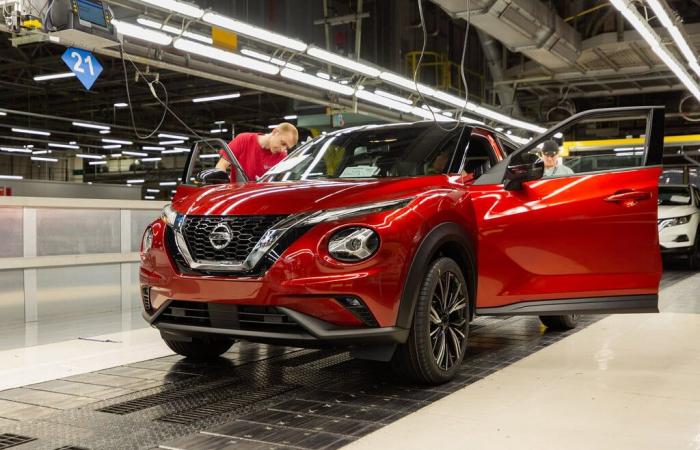Faced with the market crisis, Nissan will have to reduce its global production capacity by 20%. At the same time, 9,000 positions will be eliminated.
Nissan, like many other players in the automotive industry, is facing financial turmoil. The second quarter of its fiscal year ended with an unexpected net loss of 56 million euros, while analysts anticipated a profit At the same time, its turnover fell to 18 billion euros, recording a decline of 5% compared to the previous year.
Faced with this worrying situation, Nissan announced urgent measures to turn around its performance. In a statement, the group said it wanted to build a business “more responsive and more resilient, capable of quickly adapting to market developments”.
Cost cuts and job cuts
To restructure, Nissan intends to drastically reduce its costs. The group has set a target of reducing its fixed costs by 1.8 billion euros and its variable costs by 6.8 billion euros by the 2024-2025 financial year. To achieve this objective, the manufacturer plans a 20% reduction in its global production capacityas well as the elimination of 9,000 jobs internationally. Measures to rationalize costs are also planned, while investments in research will be prioritized.
As part of this rationalization strategy, Nissan will also reduce its stake in Mitsubishi from 34% to 24%.
Due to disappointing second-quarter results, Nissan has revised downward its forecast for the full fiscal year 2024-2025, which ends next March. However, the manufacturer no longer provides a precise forecast for its net profit, explaining that the latter will depend on the costs generated by the ongoing recovery efforts.
Fears over threats of US tariffs
In the United States, a crucial market for Nissan, the manufacturer's sales fell by 2.3% over one yearreaching only 212,000 units sold between July and September. The manufacturer's mission is to “rebuild your brand” in this country. Donald Trump's restoration to the presidency could intensify these rights, which would pose a challenge for Nissan, which exports a significant share of its vehicles to the United States from Mexico.
“We export a significant number of vehicles from Mexico to the United States, this is expected to reach around 300,000 units this year”said Makoto Uchida, Nissan's general manager. The manufacturer plans to lobby to avoid an increase in customs tariffs while adjusting its medium and long-term strategies.
Besides the United States, Nissan is also experiencing difficulties in the Chinese marketwhere its sales fell 13%, reaching 172,000 units last quarter. The manufacturer faces fierce competition from Chinese players, dominant in the booming electric vehicle segment. In Europe, Nissan's quarterly sales also declined, recording a drop of 5.9%, with 80,000 vehicles sold.
To bounce back, Nissan is banking on the electrification of its catalog. The manufacturer plans to launch new electric car models in China as well as plug-in hybrid and electric models in the American market. The group also aims to reduce the development time of its new models to 30 monthsin the hope of remaining competitive in the face of rapid developments in the automotive sector.






